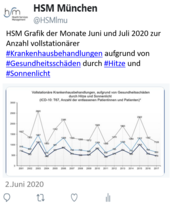Measuring care coordination
Health system and patient perspectives
| Authors/Editors: |
Schang, L. Waibel, S. Thomson, S. |
|---|---|
| Publication Date: | 2013 |
| Type of Publication: | Articles in Non-Refereed Journals and Books |
| erschienen in: | LSE Health. |
ABSTRACT
Lack of coordination is widely considered to be one of the key causes of poor quality health care. Policies designed to promote care coordination should be accompanied by evaluation of their results as part of the measurement of the health system's performance. This report reviews in detail different approaches to measuring care coordination (including related concepts of continuity of care and care integration) from health system and patient perspectives. It summarises the range of qualitative and quantitative methods and data sources that are available, and highlights their advantages and disadvantages. The report also provides information on the experience of three countries – England, the Netherlands and the Catalonia region of Spain – which have made recent advances in measuring care coordination. Appendices provide a summary of relevant quality indicators (pertaining to structure, process and outcomes of care) that can be used in order to gain an insight into the degree to which the provision of care is successfully coordinated.





